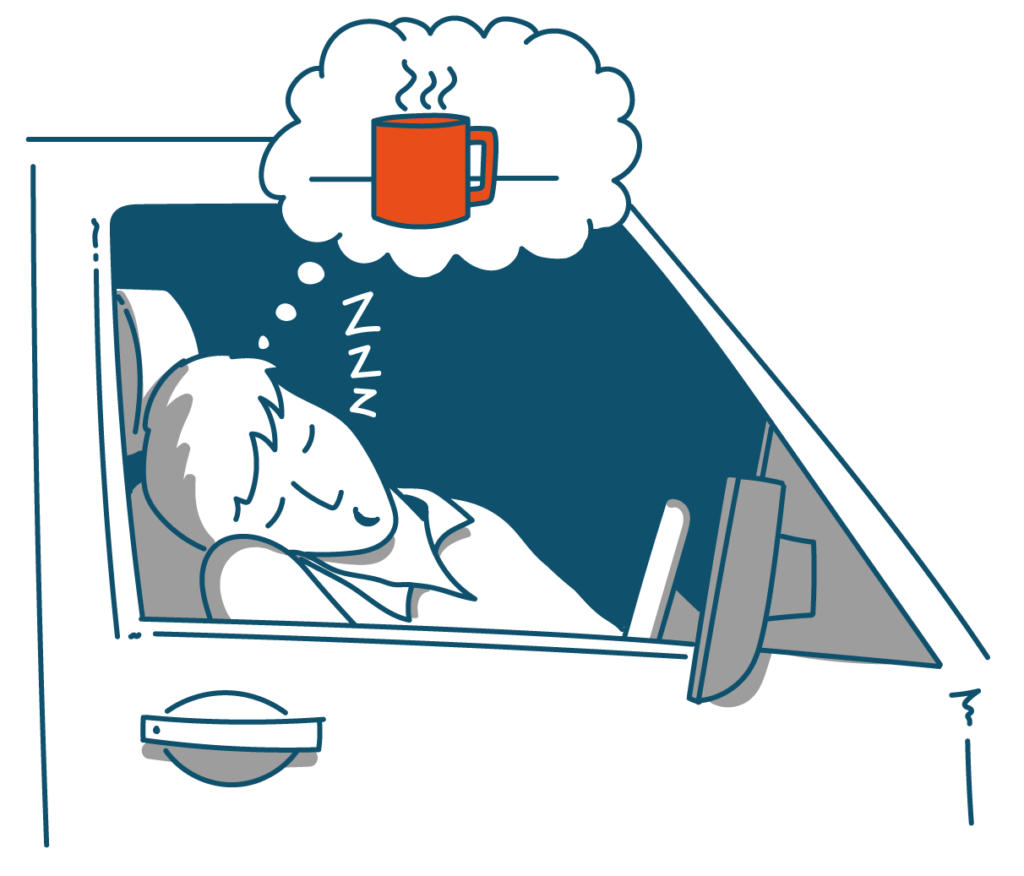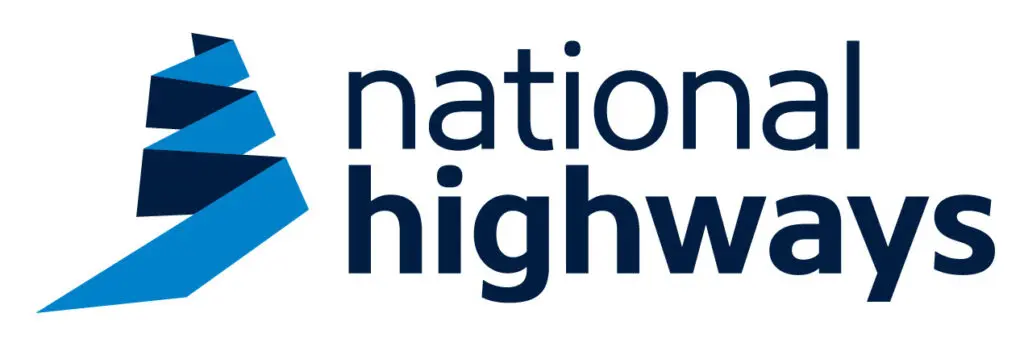Check what you know
Did you know?
Best practice tips
Check what you know
Did you know?
- Up to one in five collisions are caused by tiredness.
- Peak times for fatigue-related collisions are within the hours of 02:00-06:00 and 14:00-16:00.
- Sleeping just four to five hours a night for a week impairs performance to the same extent as being over the alcohol limit.
1 in 5 people suffer some form of sleep problem affecting their driving ability by impairing coordination, judgment ability and memory and causing longer reaction times.
![]()
![]() A driver who is awake for 24 hours is seven times more likely to have a collision.
A driver who is awake for 24 hours is seven times more likely to have a collision.
Best practice tips
- Have adequate sleep before starting your journey.
- Avoid heavy meals before starting your journey.
- Plan a 15-minute break for every two hours of driving.
- Avoid taking medication that causes drowsiness.
- Stop in a safe place and take a break at the first sign of tiredness.
- Drink two cups of coffee or an equivalent caffeinated drink.
- Take a short nap of around 15-20 minutes.

Driving when tired or unwell impairs judgement and slows reaction time, leading to delayed responses and late braking. This contributes to many rear-end collisions. It also affects coordination which can result in variance in speed – slowing down and speeding up. Tired drivers also have what is known as microsleeps, which last from a fraction of a second to 2 seconds. At 56mph a van travels 25m/sec, so microsleeping for two seconds means 50m of unconscious travel.
Motorways and dual carriageways are the most common roads for sleep- related road incidents, due to the monotonous road environment and lack of interruptions. Collisions caused by drivers falling asleep involve vehicles running off the road or into the back of another vehicle. They tend to be high-speed impact collisions with an increased likelihood of death or serious injury.

Categories


Crown Copyright 2025
You may re-use this information (not including logos) free of charge in any format or medium, under the terms of the Open Government Licence.
To view this licence, visit www.nationalarchives.gov.uk/doc/open-government-licence